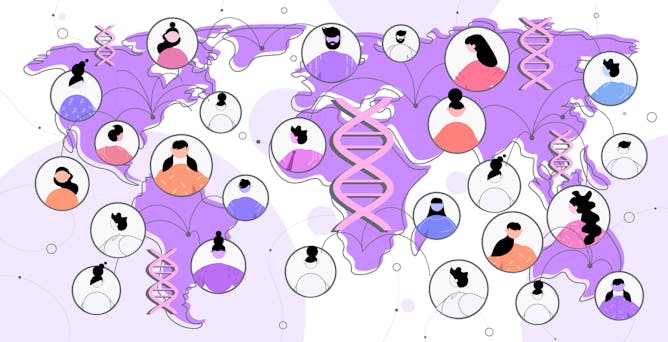|
The advent of genomic sequencing opened a new era of precision medicine in which treatments can take into account the unique differences between individuals. But there’s one major hurdle: The data is overwhelmingly from white people. As a result, researchers are unable to capture much of the genetic diversity of populations around the world. And lacking a full picture of all the forms the human genome can take can limit understanding of a given disease.
One global initiative is trying to change that. Researchers in 14 countries across four continents are collecting and analyzing DNA samples from around the world, trying to uncover the genetic underpinnings of mental illness. Hailiang Huang and his colleagues describe the guiding principles of the collaboration, and the new sequencing method they’ve developed to help capture the genetic diversity of humanity.
Ukrainian armed forces have made stunning progress in counteroffensives against Russia in the north-east and south, despite being significantly outgunned. As Russia and security expert Matthew Sussex explains, Russia’s ailing military performance raises the question of where Putin goes next. Escalation looks increasingly likely - but what form would that take?
|

Hailiang Huang, Harvard University
Existing genetic data and sequencing tools are overwhelmingly based on people of European ancestry, which excludes much of the rich genetic variation of the world.
|

Matthew Sussex, Australian National University
Vladmir Putin has a new problem. His invasion of Ukraine is not just bogged down. It’s going backwards.
|
|
|
-
Edouard Wemy, Clark University
Inflation remained near a 40-year high due to a jump in the cost of food and shelter. But that might not mean the Federal Reserve will get more aggressive when it comes to monetary policy.
-
Christopher Morris, University of Portsmouth
Russia’s military is plagued by problems all the way to its commander-in-chief Vladimir Putin.
-
Jay L. Zagorsky, Boston University
Despite the highest inflation rates in 40 years, Apple chose not to raise prices on its gadgets. More bizarre, the consumer price index suggests smartphones are 20% cheaper than a year ago.
-
Michael Jennings, SOAS, University of London
Since the Brexit referendum in 2016, Africa has slipped from its precarious but tangible place in UK political discourse.
-
Ellen W. Evans, Cardiff Metropolitan University
Food safety experts explain the risks of turning the fridge temperature up (or even turning the fridge off) to save energy.
|
|

Jonathan Levy, Boston University
Natural gas has been marketed for decades as a clean fuel, but a growing body of research shows that gas stoves can contribute significantly to indoor air pollution, as well as climate change.
|